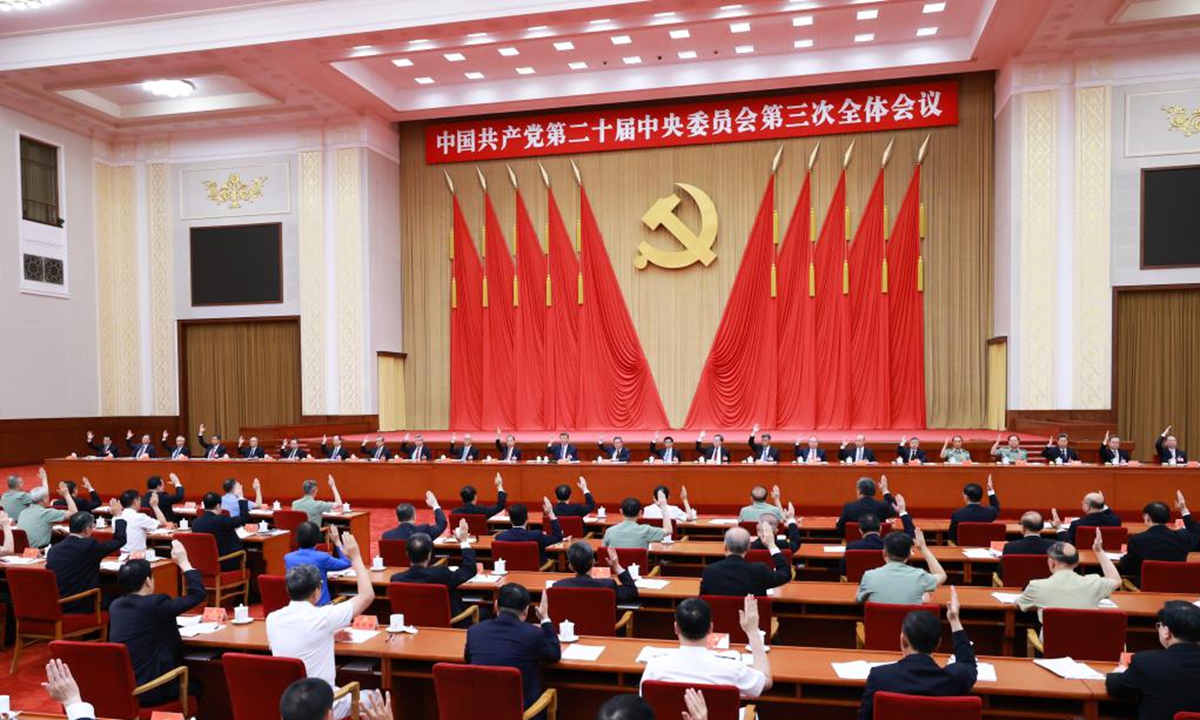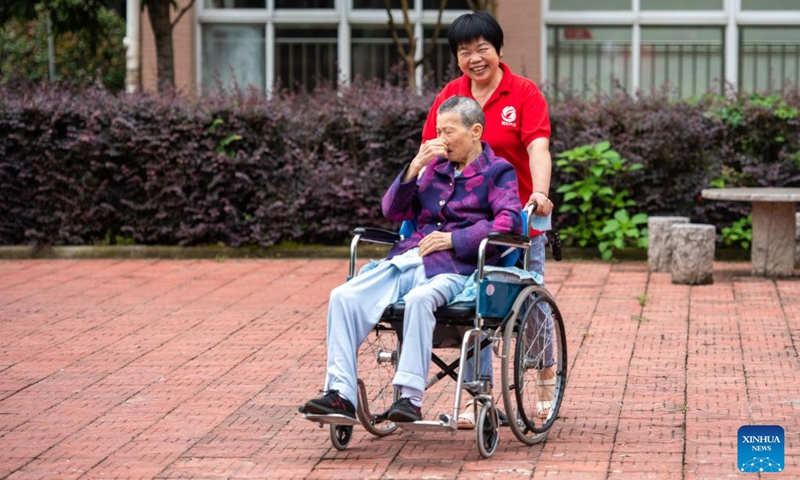

A view of Lujiazui area in Shanghai Photo: VCG
Witnessing the trends of declining birth rate and an aging population in China, some naysayers use them to talk down China's future economy, claiming that these demographic shifts will impede economic growth potential.However, this fear-mongering is nothing but fallacy and highly misleading. As both population and economic development are constantly evolving, by proactively implementing reforms, China can effectively coordinate population and economic development to ensure continued growth.
The trend of negative population growth and aging is a global phenomenon being encountered by many countries, which isn't exclusive to China. According to the United Nations World Population Prospects 2022, in 2020, the global population growth rate fell under 1 percent per year for the first time since 1950, with a growing number of countries experiencing population drops.
Shrinking and aging populations present a common challenge that all countries are either currently facing or will face in the future. It is important for countries to objectively assess and proactively address the demographic problem, instead of sensationalizing "population anxiety" and unfairly minimizing other nations' economic prospects.
The silver economy is an innovative strategy aimed at enhancing economic reform in an aging society. To further advance the reform of the economic development model that is suitable for an aging population, China in January released guidelines to strengthen the silver economy as part of efforts to address the challenges of an aging population.
The resolution adopted by the third plenary session of the 20th CPC Central Committee emphasized the commitment to supporting the development of the silver economy. It notes that China will actively respond to population aging and will refine policies and mechanisms for developing elderly care programs and industries.
On the supply side, the silver economy helps shift the economic development model from being dominated by the size of a labor force to being led by the quality of human resources and total factor productivity.
On the demand side, the silver economy adapts to the changing sequence of the declining exports and investment growth rates by implementing strategies to expand domestic demand and the "dual circulation" strategy, activating and developing new consumption dynamics in an aging society.
China has formed a strategic orientation to promote the high-quality development of the silver economy. The silver economy has experienced progressive development, and in 2024, it emerged as a prominent economic strategy under three key guiding principles. First, achieving the linkage between high-quality population development and high-quality economic development. Second, promote the coordinated high-quality development of the elderly care industry and services. Third, drive the combination of markets and government to improve allocation of social resources of an aging society.
Chinese modernization is characterized by its vast population, including a large population aged 50 and above. The large base of residents aged between 50 and 70 has the potential to create a vibrant silver economy market in areas such as fitness, healthcare and tourism. The elderly population aged 70-79 will form a mainstay of health-oriented silver economy such as medical treatment, diet, and tourism. The elderly population aged 80 and above will harbor market potential covering housing and diet.
The Chinese modernization is common prosperity for all people. This is the greatest advantage of the socialist system. China is committed to the path of pursuing common prosperity, with no one left behind, especially focusing on improving income levels and welfare in old age. As the country has already formed a moderately prosperous society and is rapidly moving toward common prosperity, the market potential of the silver economy is rapidly being unleashed, contributing to China's eventual modernization.
Yuan Xin is professor of School of Economics, Nankai University; Jin Niu is lecturer from the School of Public Finance and Administration, Tianjin University of Finance and Economics. bizopinion@globaltimes.com.cn



